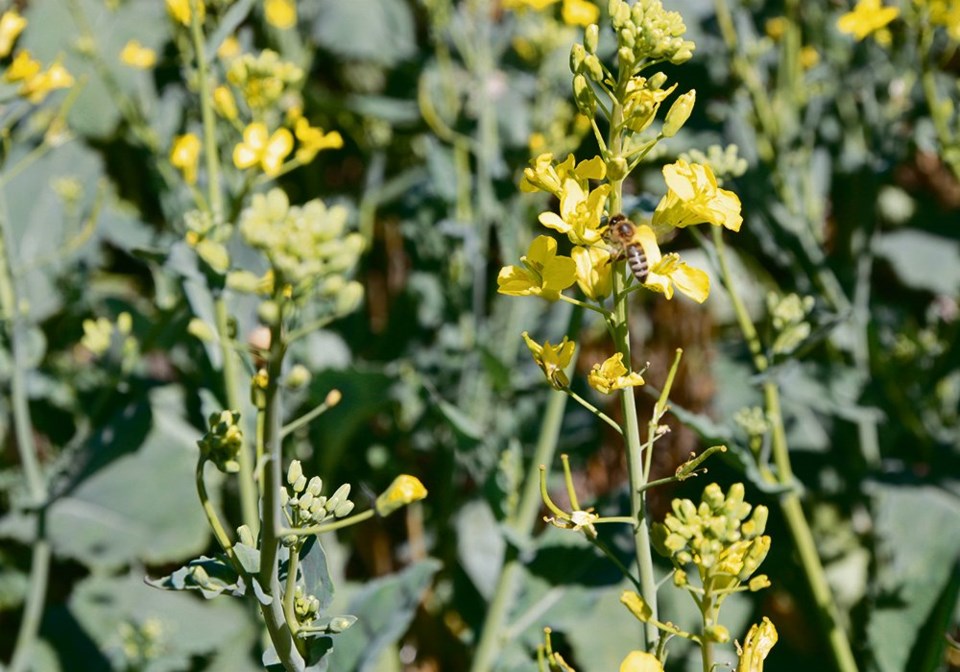WESTERN PRODUCER — The Saskatchewan Canola Development Commission is asking farmers to help identify new research priorities.
SaskCanola is a producer-funded commission, supported by about 20,000 levy-paying canola growers in the province.
The organization recently launched a new website at saskcanola.com and kicked off a new online research priorities survey, seeking feedback from the province’s canola growers on future research priorities.
Growers can participate in the survey by visiting the new SaskCanola website. The deadline to complete the survey is March 31.
Survey respondents will be entered to win a $500 vacation package from Elk Ridge Resort, including two nights accommodation, a $100 restaurant gift card and a pass for four 18-hole green fees with power carts.
Since it was established in 1991, SaskCanola has used producer levies to fund 465 canola-related research projects aimed at increasing production and benefitting the Saskatchewan canola industry.
The commission recently committed $825,000 to nine new research projects under the Canola Agronomic Research Program.
Proposals submitted under the CARP program are “reviewed by the grower association research committees so the research projects that receive funding are chosen by farmers for farmers, with an ultimate end goal of the results maintaining canola’s competitiveness and increasing on-farm profitability,” said Keith Fournier, research chair at SaskCanola.
The projects that will receive CARP research funding in 2022 range in duration from one to five years. They include:
- A study to continue monitoring L. maculans populations following the introduction of new resistance genes. L. maculans is a fungal pathogen that causes blackleg. The project is being led by Agriculture Canada researcher Gary Peng and will receive $94,000 in SaskCanola funding.
- A study that examines drought tolerance in canola through modulating a novel gene family. The research is being led by National Research Council scientists Jitao Zou and will receive $55, 711 in SaskCanola funding.
- A study led by University of Manitoba researcher Rob Gulden that examines and updates the critical weed-free period in canola. That project will receive support from SaskCanola valued at $87,477.
- A meta-analysis of small-plot canola trials by IHARF researcher Christiane Catellier to examine the relationship between crop development and environmental conditions. That project will receive $7,500 from SaskCanola.
- A project led by researcher Guanqun (Gavin) Chen aimed at generating new canola lines with increased heat and drought tolerance. Chen’s project will receive $137,229 from SaskCanola.
- A project led by Agriculture Canada researcher Charles Geddes that looks at balancing economics, action and seed production of glyphosate-resistant kochia in commercial canola crops. That project will receive $82,500 from SaskCanola.
- A study led by Ag Canada researcher Tim Dumanceaux that examines the climate change resilience of prairie oilseed crops and their below-ground microbiota under drought conditions. That project will receive $167,200 from SaskCanola.
- A study entitled deploying disease signal pathways to fight canola pathogens, led by Queen’s University researcher Jaqueline Monahan. That project will receive $131,404 from SaskCanola.
- A project entitled climate smart canola: quantifying soil- and fertilizer-derived nitrogen sources and greenhouse gas emissions, led by University of Saskatchewan researcher Melissa Arcand. Arcand’s project will receive $62,038 in SaskCanola funding.
CARP is administered by the Canola Council of Canada and funded by provincial canola grower organizations in the three prairie provinces.
Additional funding is provided by the Western Grains Research Foundation and Results Driven Agricultural Research.

